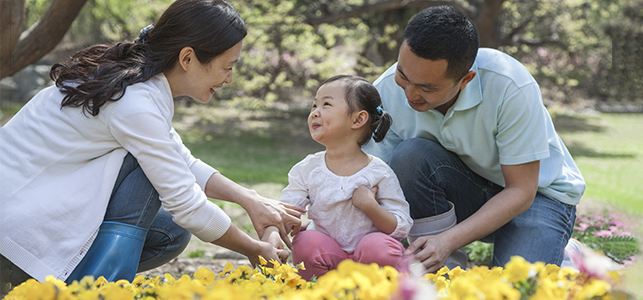
Safety tips from the Virginia Poison Center for National Poison Prevention Week
Spring brings renewed plant and animal life, outdoor chores and allergies – all of which come with potential poison dangers. On average, 90% of poisonings in America each year happen at home, and more than 70% of people who call the Poison Help line get the assistance they need right where they are, saving a trip to a health care professional or hospital.
Call the Poison Help line – 1-800-222-1222
When the unexpected happens, the Virginia Poison Center is just a phone call away with fast, free advice from registered nurses 24/7. Calling a poison center is faster and more accurate than an internet search. Whether it's a question or an emergency, the Poison Help line can provide life-saving information when you need it most.
Poison prevention tips to keep in mind this spring
Pesticides
Spring brings insects, the growing season and the use of pesticides. Pesticides are any substance or mixture of substances intended for preventing, destroying, repelling or mitigating any pest. Pesticides can also be used as a plant regulator, defoliant or desiccant.
“Common calls we receive for children related to pesticides are for insect or bug repellent in the eye or on the skin that can cause burning, stinging or irritation, ant or mouse bait being accidentally ingested, and containers being left within sight and reach,” said Shelly Clary, educational specialist at the Virginia Poison Center.
When using pesticides:
- Always read the entire label before purchasing and using. You are legally required to read and follow everything on the label.
- Measure and mix in well-ventilated areas away from children and pets.
- Store in a locked cabinet or secure area, away from ignition sources and out of sight/reach of children.
- Keep in original containers or bags with proper labeling when storing.
Antihistamines
Allergies and springtime go hand-in-hand. When taking antihistamines:
- Store medications up high and out of sight/reach of children.
- Always read the label carefully for safe dosing (more is NOT always better).
- Buy/use a children’s product when giving antihistamines to children.
- Don’t give your children more than one medication with the same active ingredient at a time unless instructed to do so by a health care provider.
- Use the dosing device that comes with the medication to ensure safe dosing.
Plants
As the weather warms up, poison centers receive many calls about kids and adults who have either touched or eaten poisonous plants, berries, seeds or wild mushrooms. If you suspect someone has touched or swallowed a poisonous plant, call the Poison Help line right away!
- Keep all bulbs, seeds, plants and flowers out of reach of children and pets.
- Know the names of all plants in your home, yard and play areas.
- Teach children never to put leaves, stems, bark, seeds or berries in their mouth.
- Download a plant identification app on your cell phone in case of an emergency.
- Do not assume that a plant is not poisonous because animals or birds eat it.
- Never eat wild plants or mushrooms. Also, do not rely on cooking to destroy toxic chemicals in plants, especially mushrooms. Many plant toxins are not altered by heat.
- Fruit pits and seeds from apples, apricots, cherries, nectarines and peaches are poisonous, but only if chewed and eaten in large amounts. One or two seeds does not typically cause illness.
National Poison Prevention Week was established by Congress in 1961 to raise awareness of poison prevention and safety. It’s observed every year during the third week in March.
